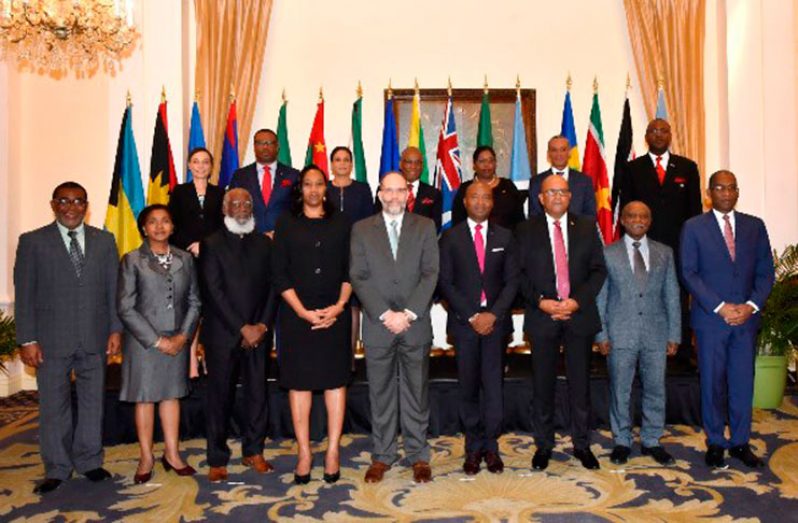FOREIGN service ministers from across the Caribbean have reiterated their unequivocal support for the maintenance and safeguarding of Guyana’s sovereignty and territorial integrity.
At the 21st Meeting of the Council for Foreign and Community Relations (COFCOR) of the Caribbean Community (CARICOM) which convened in Nassau, Bahamas on Monday, ministers noted that the decision of the United Nation (UN) Secretary-General to refer the issue to the International Court of Justice (ICJ) is in accordance with the principles and purposes of the United Nations Charter.
They also believe that it is intended to bring a peaceful and definitive settlement to a longstanding controversy.
Guyana’s Minister of Foreign Affairs, Carl Greenidge, attended the two-day conference between May 7 and 8 under the chairmanship of the Bahamas Minister of Foreign Affairs, Darren Allen Henfield.
On March 29, Minister Greenidge, on behalf of the government, submitted its application to the ICJ, requesting the court to confirm the legal validity and binding effect of the 1899 Arbitral Award regarding the boundary between Guyana and Venezuela.
Venezuela is contending that the 1899 Arbitral Award giving rights to Guyana over its territorial boundary is null and void.
The longstanding controversy started during the second half of the nineteenth century, between Venezuela and Great Britain over the location of the border between its colony of British Guiana and the Spanish-speaking country. It continued until an Arbitral Tribunal was empanelled in 1897 to determine the borders and issued an Arbitral Award on October 3, 1899.
However, Venezuela has criticised the decision, stating only the 1966 Geneva Convention can reach a peaceful solution. The two countries, under the 1966 Geneva Agreement, turned to the UN secretary-general to resolve what became a controversy under the Charter of the UN.



.jpg)








